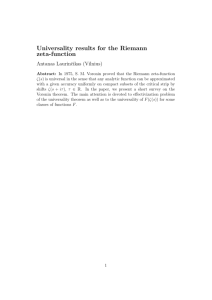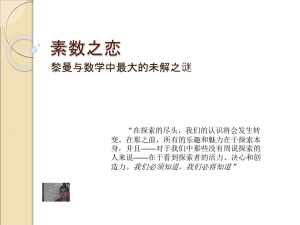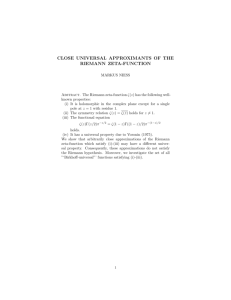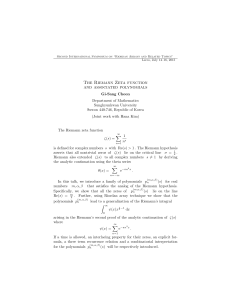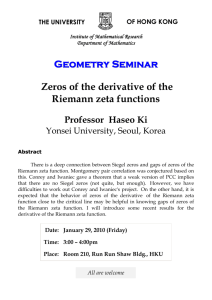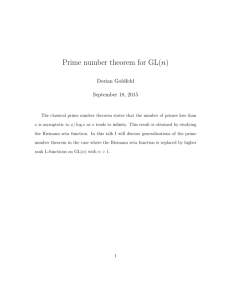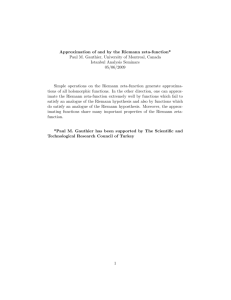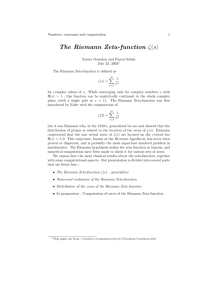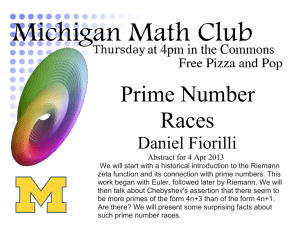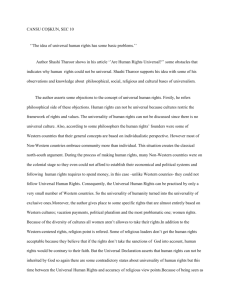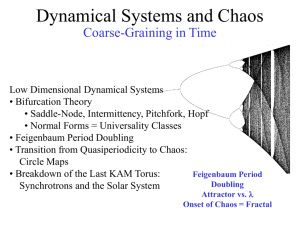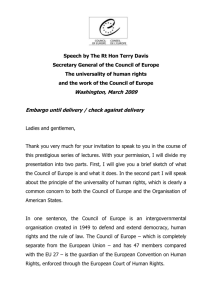ZETA FUNCTIONS. UNIVERSALITY, ZEROS, AND MOMENTS
advertisement
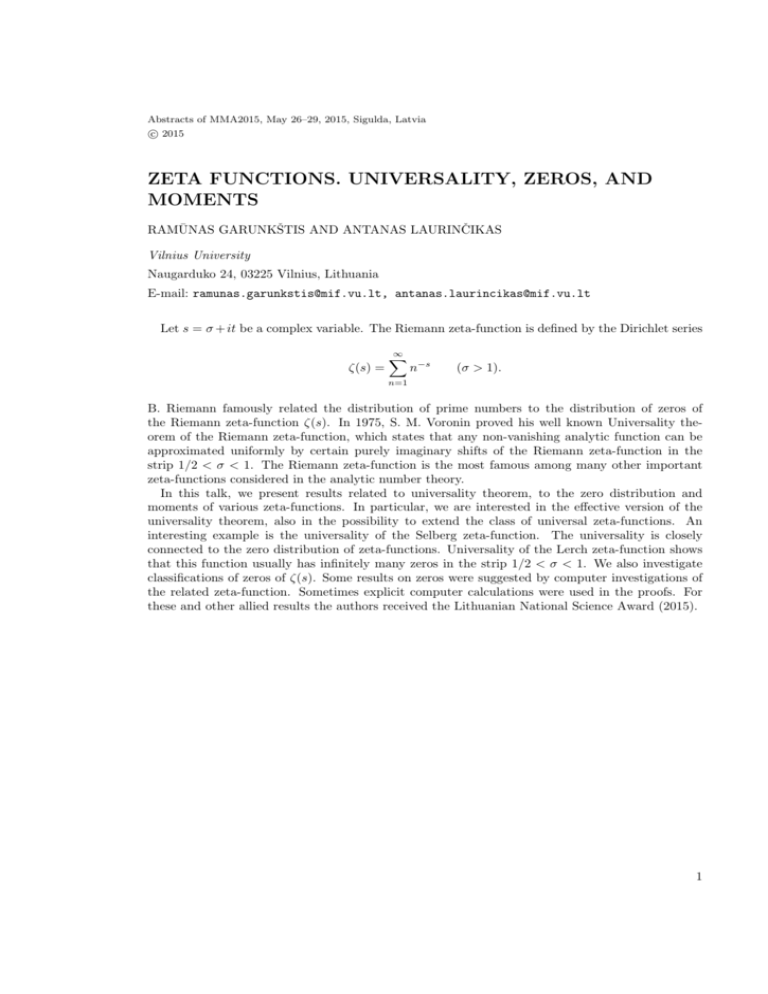
Abstracts of MMA2015, May 26–29, 2015, Sigulda, Latvia c 2015 ZETA FUNCTIONS. UNIVERSALITY, ZEROS, AND MOMENTS RAMŪNAS GARUNKŠTIS AND ANTANAS LAURINČIKAS Vilnius University Naugarduko 24, 03225 Vilnius, Lithuania E-mail: ramunas.garunkstis@mif.vu.lt, antanas.laurincikas@mif.vu.lt Let s = σ + it be a complex variable. The Riemann zeta-function is defined by the Dirichlet series ζ(s) = ∞ X n−s (σ > 1). n=1 B. Riemann famously related the distribution of prime numbers to the distribution of zeros of the Riemann zeta-function ζ(s). In 1975, S. M. Voronin proved his well known Universality theorem of the Riemann zeta-function, which states that any non-vanishing analytic function can be approximated uniformly by certain purely imaginary shifts of the Riemann zeta-function in the strip 1/2 < σ < 1. The Riemann zeta-function is the most famous among many other important zeta-functions considered in the analytic number theory. In this talk, we present results related to universality theorem, to the zero distribution and moments of various zeta-functions. In particular, we are interested in the effective version of the universality theorem, also in the possibility to extend the class of universal zeta-functions. An interesting example is the universality of the Selberg zeta-function. The universality is closely connected to the zero distribution of zeta-functions. Universality of the Lerch zeta-function shows that this function usually has infinitely many zeros in the strip 1/2 < σ < 1. We also investigate classifications of zeros of ζ(s). Some results on zeros were suggested by computer investigations of the related zeta-function. Sometimes explicit computer calculations were used in the proofs. For these and other allied results the authors received the Lithuanian National Science Award (2015). 1
